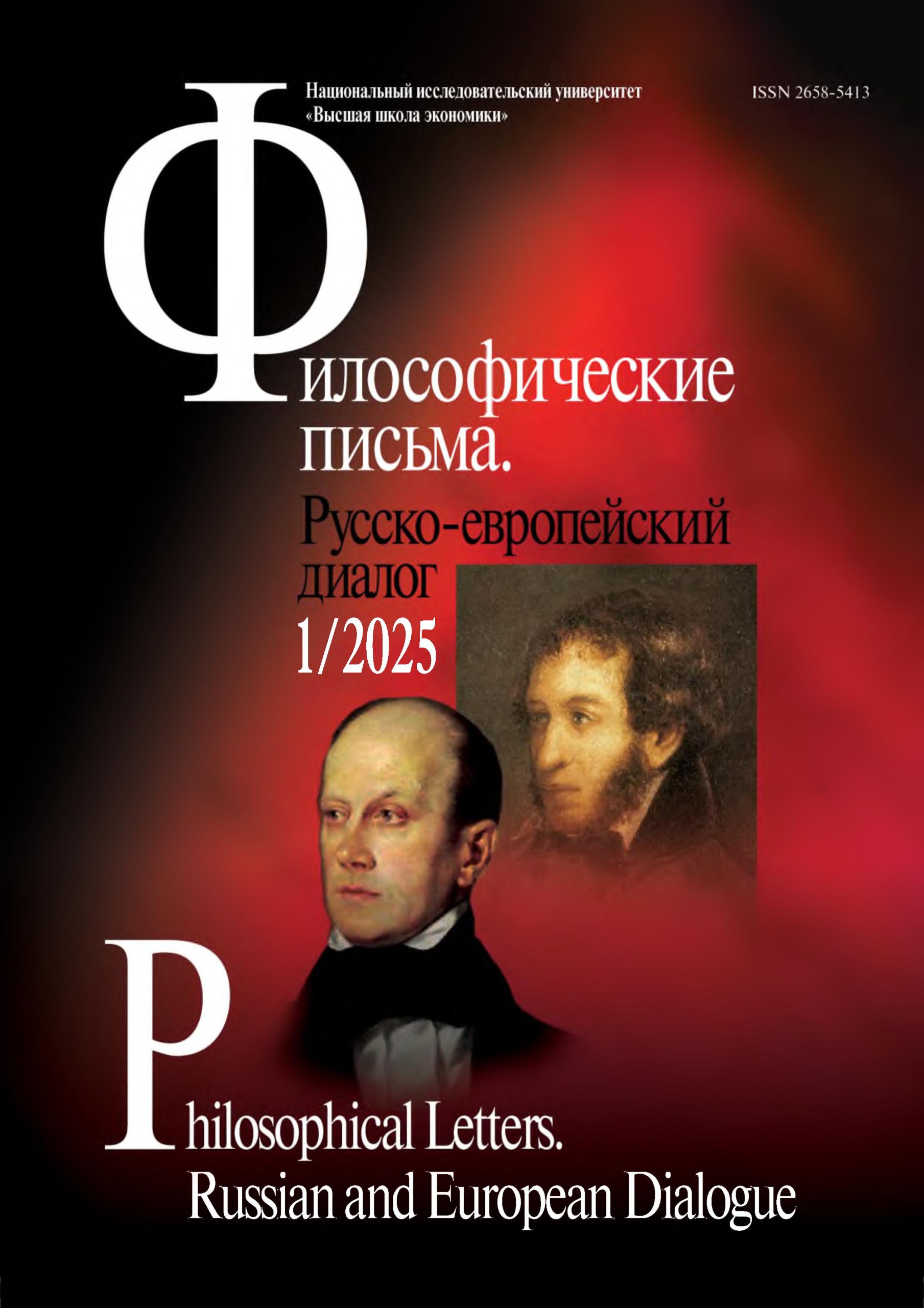Paradoxical ‘The Bet' and Syncretic ‘The Triangle' by Pascal in the Creative Practice of F. M. Dostoevsky
Abstract
The article presents the hypothesis that Pascal's Bet, which captures the complex existential situation of Homo sapiens, does not so much require the choice of “heads” or “tails” as it offers philosophical navigation capable of orienting a person ontologically and morally. The true goals and means of Pascal's “bet,” relatively generally accepted, change places, this is how Dostoevsky understood the hidden meaning of the Bet: the presence of human consciousness in the zone of the “eternal question” provides the opportunity for intuitive insights that can clarify what is inaccessible to reason. This gave rise to the phenomenon of “double thoughts” in his work, which presupposes a vision of reality simultaneously from the point of view of immortal and mortal beings. An important factor in Pascal's credo was his Triangle. The article contains a publication of Dostoevsky's drawing, with a comment on where images of triangles could have appeared in Dostoevsky's manuscripts.

